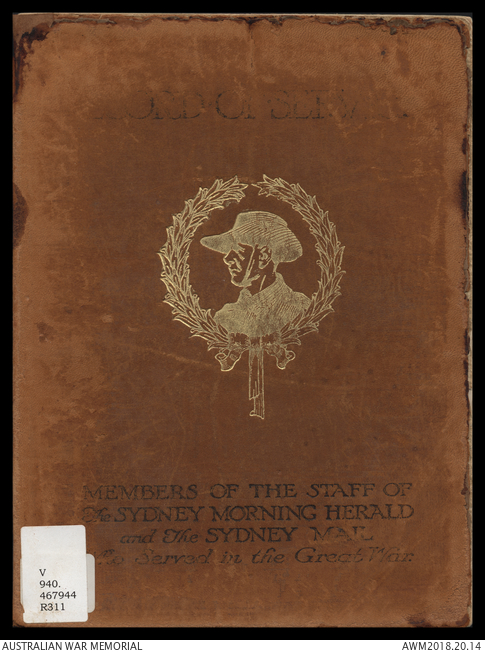| Ranks Held | Captain, Major, Second Lieutenant |
|---|---|
| Birth Date | 1880-04-29 |
| Birth Place | Australia: New South Wales, Sydney |
| Death Date | 1919-03-03 |
| Death Place | United Kingdom: England, Greater London, London |
| Final Rank | Major |
| Service | Australian Imperial Force |
| Units |
|
| Places | |
| Conflict/Operation | First World War, 1914-1918 |
| Gazettes |
Biographical information The Oxford companion to Australian military history in 1995 |
Major Oliver 'Trooper Bluegum' Hogue


Oliver Hogue was born in Sydney on 29 April 1880. Despite growing up in the city, his ability at sports and his skill as a horseman led Hogue to consider himself a bushman and, after completing school, he travelled thousands of miles by bicycle along Australia's east coast. He worked as a commercial traveler before joining the Sydney Morning Herald in 1907 as a journalist. After the outbreak of the First World War Hogue tried unsuccessfully to become Australia's official war correspondent and instead enlisted as a trooper with the 6th Light Horse Regiment. He departed Sydney aboard HMAT Suevic on 21 December 1914.
Hogue served on Gallipoli for five months before being evacuated to England with enteric fever. He returned to his unit in the Sinai region in early 1916. Hogue developed a reputation as a loyal and enthusiastic officer unafraid of front-line service, and he was a regular writer to both his family and his former employer. Writing under the pseudonym "Trooper Bluegum", his contributions to the Sydney Morning Herald were published as books back in Australia. After participating in the battle of Romani in August 1916 he was transferred to the Imperial Camel Corps (ICC) and was involved in the battles of Magdhaba, Rafa, and Gaza in 1917. In letters home Hogue frequently referred to the fearlessness and achievements of the Australian troops, especially at Romani. He was also critical of the British press coverage of the war, which largely overlooked the accomplishments of the ICC and Australian troops in general.
In July 1918 Hogue was transferred to the 14th Light Horse Regiment and participated in the advance through the Jordan Valley. He was also promoted to major at this time. After reaching Damascus, and with the Turkish surrender in October, Hogue took leave to England in January 1919. Having survived the entirety of the First World War he soon after contracted influenza and died in London on 3 March 1919.






